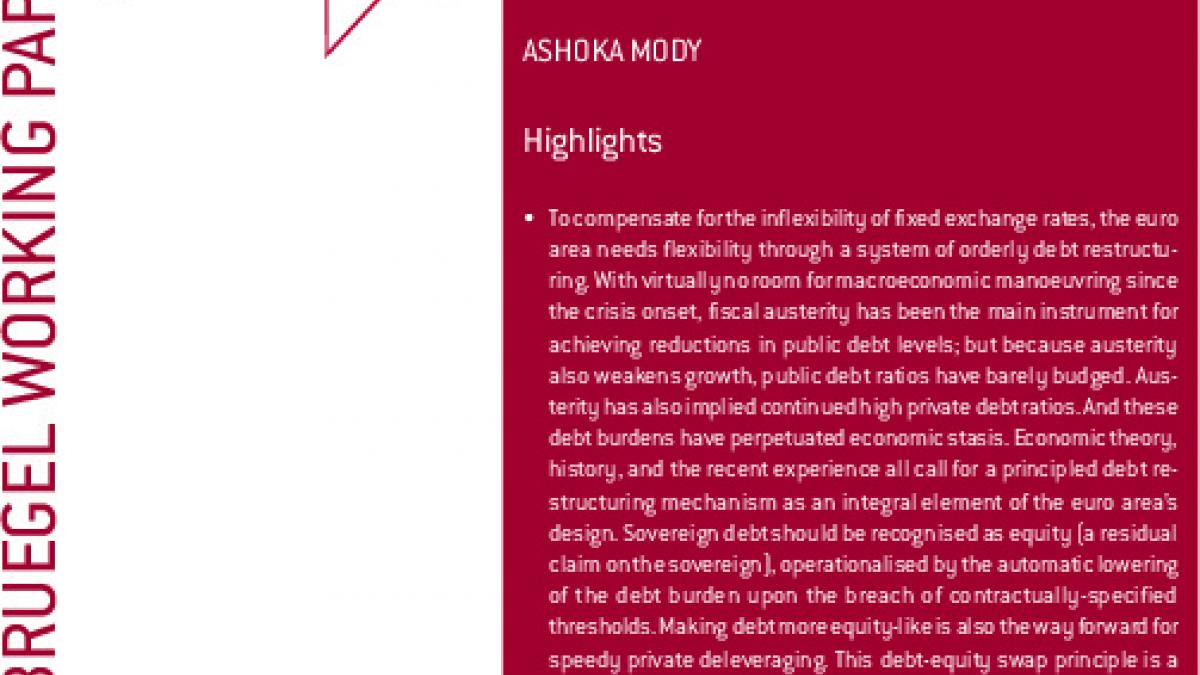Sovereign debt and its restructuring framework in the euro area
To compensate for the inflexibility of fixed exchange rates, the euro area needs flexibility through a system of orderly debt restructuring. 

To compensate for the inflexibility of fixed exchange rates, the euro area needs flexibility through a system of orderly debt restructuring. With virtually no room for macroeconomic manoeuvring since the crisis onset, fiscal austerity has been the main instrument for achieving reductions in public debt levels; but because austerity also weakens growth, public debt ratios have barely budged. Austerity has also implied continued high private debt ratios. And these debt burdens have perpetuated economic stasis. Economic theory,history, and the recent experience all call for a principled debt restructuring mechanism as an integral element of the euro area’s design. Sovereign debt should be recognised as equity (a residual claim on the sovereign), operationalised by the automatic lowering of the debt burden upon the breach of contractually-specified thresholds. Making debt more equity-like is also the way forward for speedy private deleveraging. This debt-equity swap principle is a needed shock absorber for the future but will also serve as the principle to deal with the overhang of ‘legacy’ debt.